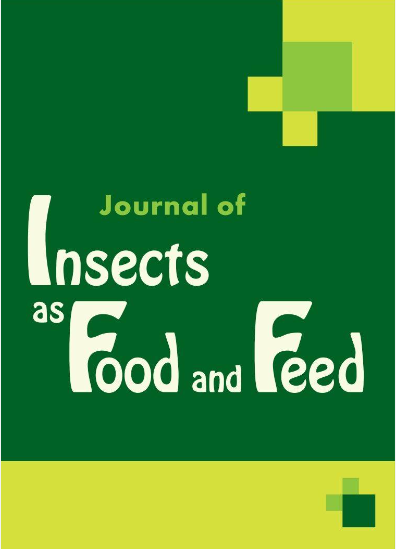COLOSS BEEBOOK - 昆虫研究标准方法的范例
IF 3.5
3区 农林科学
Q1 ENTOMOLOGY
引用次数: 0
摘要
蜜蜂作为农场动物和作物授粉者,在现代农业中发挥着至关重要的作用,它们为我们三分之一的饮食做出了贡献。在过去的几十年里,全世界的蜜蜂面临着大规模的损失。各种原因包括病原体和寄生虫的传播、栖息地的丧失和草料的减少、杀虫剂的使用以及气候变化。许多科学家在全球范围内对这些问题进行了单独和独立的调查,通常使用不同的方法,这种方法可能会导致相互矛盾,有时甚至是错误的结论。为了提供全球性和可持续的解决方案,一群蜜蜂科学家成立了 COLOSS,这是一个预防蜜蜂蜂群损失的非营利性协会。其使命是调查蜜蜂健康状况下降的原因,并找到改善蜜蜂福祉的有效方法。COLOSS 由多个核心项目和工作组组成,重点关注协会确定的需要优先关注的特定主题。在核心项目中,COLOSS BEEBOOK 是一个独特的项目,旨在为蜜蜂研究提供标准化的方法手册。该项目的目标是全面收集蜜蜂研究的既定方法和技术,使世界各地不同团体开展的研究更具可比性。由此产生的实用手册包含 2000 多种标准化方法,涉及蜜蜂研究的各个领域。这是一本权威但不断发展的研究手册。在快速发展的食用昆虫养殖和研究领域,非常需要标准化。COLOSS BEEBOOK》是研究人员为实现共同目标而开展合作所取得成就的证明,它可以为建立大规模饲养食用昆虫的标准化方法提供启示。本文章由计算机程序翻译,如有差异,请以英文原文为准。
The COLOSS BEEBOOK – an example of standard methods in insect research
Honey bees play an essential role in modern agriculture as farm animals and crop pollinators, and they contribute to one third of our diet. Over the last few decades, managed honey bees have faced large-scale losses worldwide. Various causes include the spread of pathogens and parasites, habitat loss and loss of forage, pesticide use, and climate change. Many scientists investigated these issues worldwide separately and independently, often using different methodologies, and this approach might lead to conflicting and sometimes erroneous findings. To provide global and sustainable solutions, a group of bee scientists established COLOSS, a non-profit association for the prevention of honey bee COlony LOSSes. Its mission is to investigate the causes of declining bee health and find effective means to improve the well-being of bees. COLOSS comprises various Core Projects and Task Forces focusing on specific topics identified by the association to receive priority attention. Among the core projects, the COLOSS BEEBOOK is a unique venture aiming to provide a standardised methods manual for studying the honey bee. The project’s goal has been to create a comprehensive collection of established methods and techniques for honey bee research, with the aim of making studies conducted by different groups across the world more comparable. The resulting practical manual contains over 2,000 standardized methods across all fields of honey bee research. It is definitive, but evolving, research manual. There is a strong need for standardisation in the fast-growing field of edible insect farming and research. The COLOSS BEEBOOK stands as a testament to the achievements that can be made when researchers collaborate towards a common goal, and it can serve as an inspiration for the establishment of standardized methods for the mass rearing of edible insects.
求助全文
通过发布文献求助,成功后即可免费获取论文全文。
去求助
来源期刊

Journal of Insects as Food and Feed
Agricultural and Biological Sciences-Insect Science
CiteScore
7.00
自引率
17.60%
发文量
133
期刊介绍:
The Journal of Insects as Food and Feed covers edible insects from harvesting in the wild through to industrial scale production. It publishes contributions to understanding the ecology and biology of edible insects and the factors that determine their abundance, the importance of food insects in people’s livelihoods, the value of ethno-entomological knowledge, and the role of technology transfer to assist people to utilise traditional knowledge to improve the value of insect foods in their lives. The journal aims to cover the whole chain of insect collecting or rearing to marketing edible insect products, including the development of sustainable technology, such as automation processes at affordable costs, detection, identification and mitigating of microbial contaminants, development of protocols for quality control, processing methodologies and how they affect digestibility and nutritional composition of insects, and the potential of insects to transform low value organic wastes into high protein products. At the end of the edible insect food or feed chain, marketing issues, consumer acceptance, regulation and legislation pose new research challenges. Food safety and legislation are intimately related. Consumer attitude is strongly dependent on the perceived safety. Microbial safety, toxicity due to chemical contaminants, and allergies are important issues in safety of insects as food and feed. Innovative contributions that address the multitude of aspects relevant for the utilisation of insects in increasing food and feed quality, safety and security are welcomed.
 求助内容:
求助内容: 应助结果提醒方式:
应助结果提醒方式:


